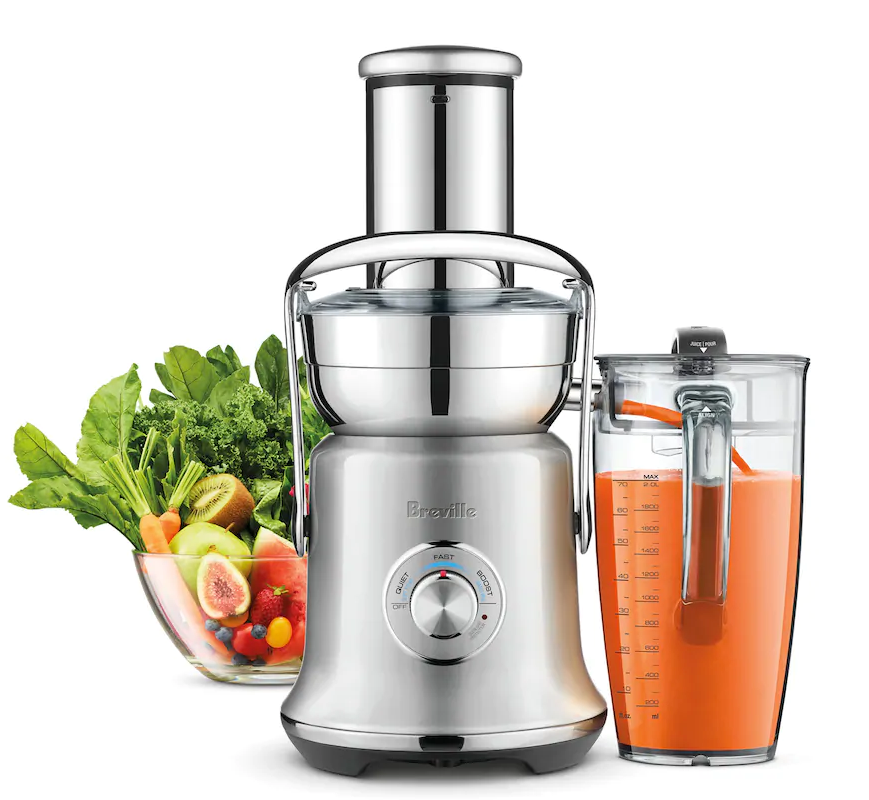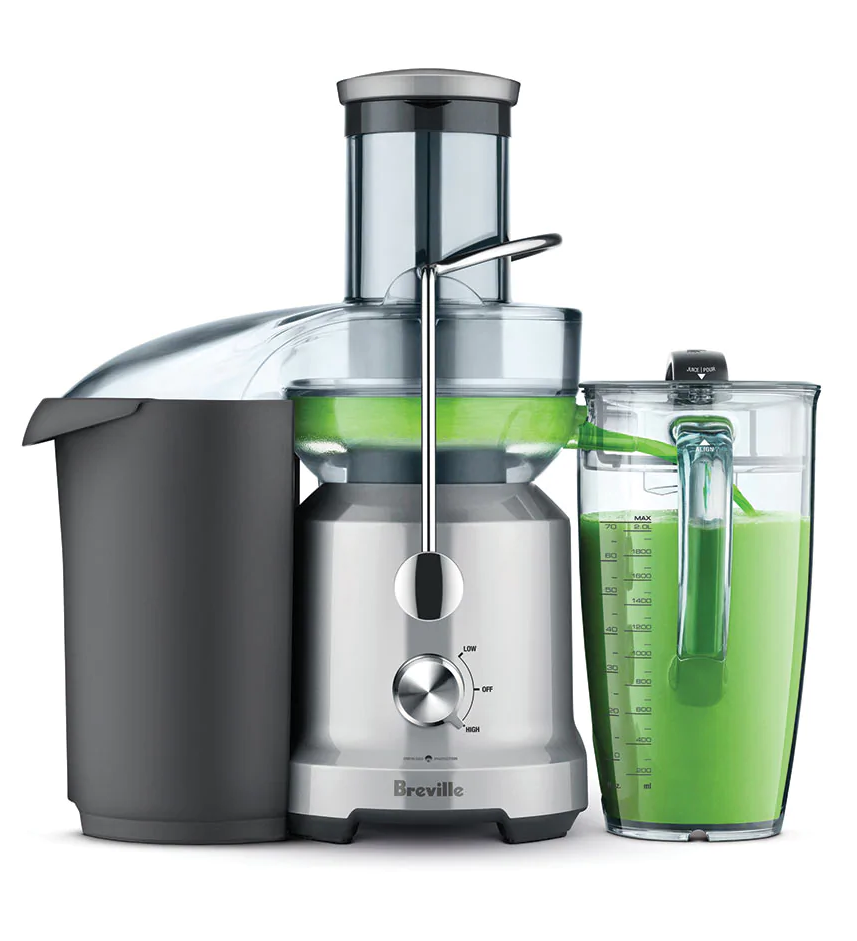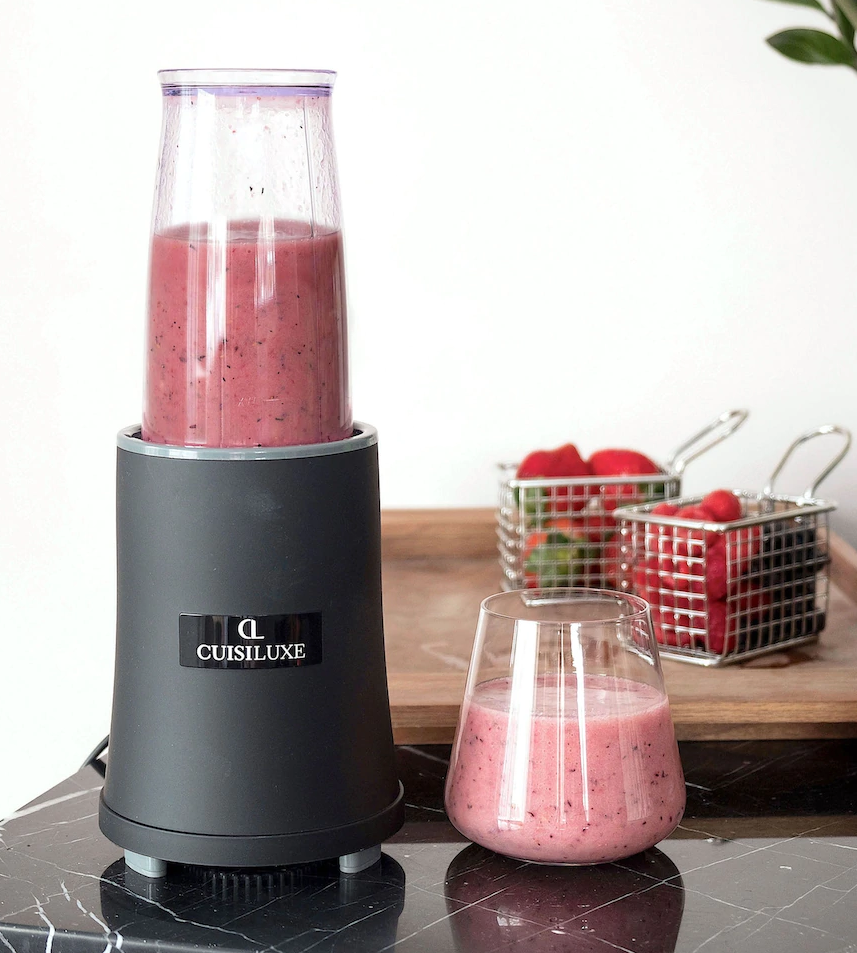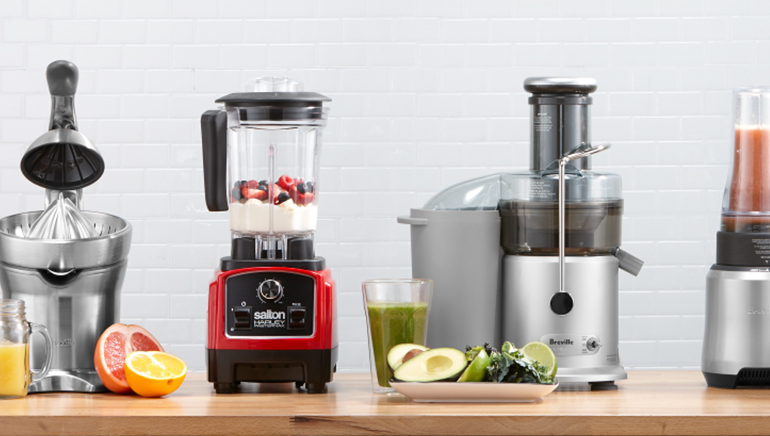 Once you venture into the world of juicing, you might find there are more options and variations than you had previously considered. The whole topic can end up being incredibly confusing.
Once you venture into the world of juicing, you might find there are more options and variations than you had previously considered. The whole topic can end up being incredibly confusing.
Juicers tend to be a fairly large investment, which means you want to make sure you purchase the right one for your needs.
We’re here to help! We’ve put together some considerations for choosing the perfect juicer.
Centrifugal versus Masticating:
There are two main types of juicers, and this is where you’ll have to make your biggest decision.
Centrifugal juicers work by shredding and spinning the vegetables and fruits. These machines work at a much faster speed, which means the whole production is completed quicker, but the juice tends to oxidize faster. Basically, the juice won’t stay fresh overnight so you want to drink it right away.
Masticating juicers are much slower because they “chew” your food instead of shred it. These juicers squeeze out the juice from the vegetables and fruits, which yields a higher volume of juice and nutrients. This juice can last longer.
Type of Produce:
When choosing a juicer, you need to consider what type of produce you are going to actually juice. Centrifugal juicers have a larger “mouth” so you don’t need to spend time chopping up the fruits and vegetables before sending them through the machine. However, they generally aren’t great with leafy greens and sprouts.
Regardless of the type of machine you’re purchasing, each brand and model will process foods differently. You can read professional roundups online to get a better sense of what vegetables are recommended or avoided - especially in terms of nuts and leafy greens. Celery seems to be a dividing factor, so search for specific celery reviews (yes, this really exists).
Size and Sound:
The size and noise of the machine are totally up to personal preference. There are compact versions and heavy countertop versions, so keep that in mind if you don’t have permanent counter space for a juicer. As a general rule, centrifugal juicers are louder than masticating ones.
Ease of Cleanup:
Juicers have many moving pieces, which means a lot of parts to clean up. The clean up needs to happen after every use and if it is easier to clean up, you are probably more likely to continue using it. Everyone has a different tolerance level but the cleanup portion needs to be considered before purchasing a juicer.
Price:
Prices vary drastically for all kinds of juicers but typically, centrifugal juicers are much cheaper than masticating ones. If you have never juiced before, it might be a good idea to purchase a less expensive product as a trial period before investing hundreds of dollars.
Masticating juicers are more expensive and slower to use, but the final juice product may contain more nutrients and enzymes from the food and will often keep for a few days longer. Centrifugal juicers are easier, cheaper and faster, but there are downsides in terms of loss of nutrients and the loudness of the machine.
An Alternative Option: Blenders
If you looking for a more versatile machine that can still create excellent drinks, then perhaps a blender might be more appropriate. The sharp blades of a blender will turn fruits and vegetables in a delicious juice or smoothie.
One of the major perks to using a blender versus a juicer is that the process of liquifying the ingredients does not get rid of all of the fibre. Instead, the pulp stays inside your drink so you get that added nutritional benefit (and less waste).
Blenders are typically more affordable, and their multi-use function is definitely something to factor into your decision. Beyond juices and smoothies, you can make other recipes like basil pesto, homemade peanut butter, hummus, butternut squash puree, creamy soups, cold soups, almond milk, and even homemade turkey stuffing. The possibilities are endless!
Shop All Juicers & Blenders >
(click the image to shop)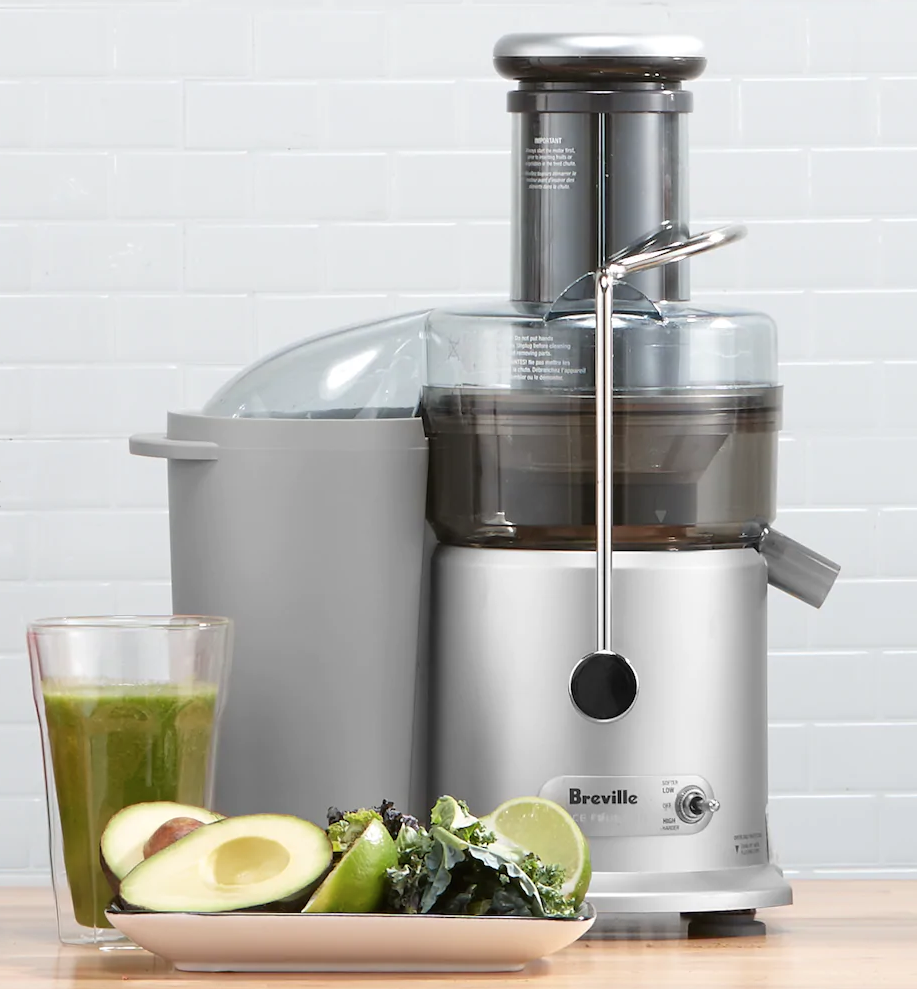

 Custom Window Blinds
Custom Window Blinds Gift Registry
Gift Registry Gift & eGift Cards
Gift & eGift Cards Custom Headboards
Custom Headboards







